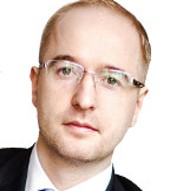|

|
BOGDANOV, Andrey A.
Candidate of Science
|
|
Research interests |
Theoretical nanophotonics and metamaterials:
-
Bound states in the continuum
-
Surface Waves
-
Plasmonics
-
Photonics
-
Metamaterials and Metasurfaces
-
Microcavities
-
Solid State Physics and Physics of Semiconductors
|
|
Features of the PhD program |
Studying on this scientific program gives you the opportunity to immerse yourself in the research world of nanophotonics, nano-optics and physics of metasurfaces and metamaterials. On this program, you can engage in theoretical and numerical and experimental physics. For this, all the necessary conditions and resources are provided, from computers to modern experimental equipment located in two experimental laboratories at the university. |
|
List of the supervisor’s research projects (participation/supervision) |
-
Bound states in the continuum in photonic structures
-
Resonant metasurfaces for biosensorics
-
Singular points in photonic nanostructures
|
|
List of potential thesis topics |
-
Bound states in the continuum in photonic structures
-
Resonant metasurfaces for biosensorics
-
Singular points in photonic nanostructures
|
|
Key publications |
-
Melik-Gaykazyan E. et al. From Fano to quasi-BIC resonances in individual dielectric nanoantennas //Nano Letters. – 2021. – Т. 21. – №. 4. – С. 1765-1771
-
Odit M. et al. Observation of supercavity modes in subwavelength dielectric resonators //Advanced Materials. – 2021. – Т. 33. – №. 1. – С. 2003804
-
Koshelev K. et al. Subwavelength dielectric resonators for nonlinear nanophotonics //Science. – 2020. – Т. 367. – №. 6475. – С. 288-292
-
Zhizhchenko A. et al. Single-mode lasing from imprinted halide-perovskite microdisks //ACS nano. – 2019. – Т. 13. – №. 4. – С. 4140-4147
-
Pidgayko D. et al. Direct imaging of isofrequency contours of guided modes in extremely anisotropic all-dielectric metasurface //ACS Photonics. – 2018. – Т. 6. – №. 2. – С. 510-515
|
|
Supervisor’s specific requirements |
-
Knowledge of the basics of electrodynamics, optics, quantum mechanics and mathematical physics
-
Experience with mathematical packages (e.g. MatLab or Wolfram Mathematica)
-
Experience with packages for numerical modeling of physical processes (e.g. COMSOL Multiphysics)
|
|
Code of the subject area of the PhD program |
03.06.01 Physics and astronomy
Specialization: Optics
Specialization: Theoretical physics
Specialization: Semiconductor Physics
|